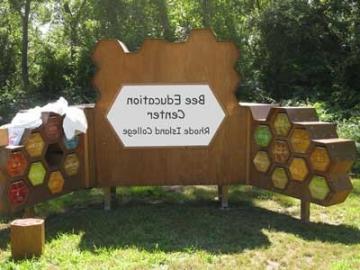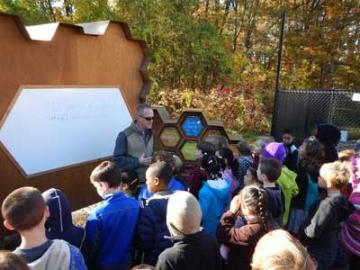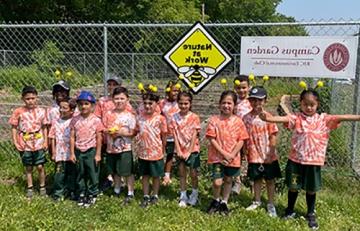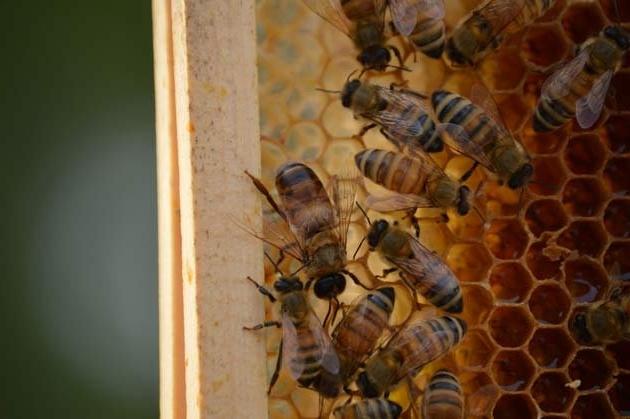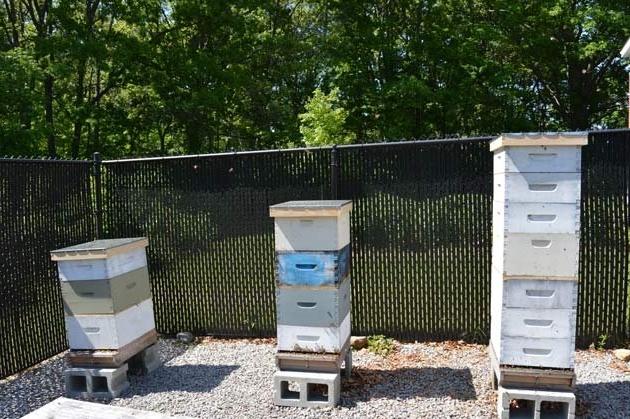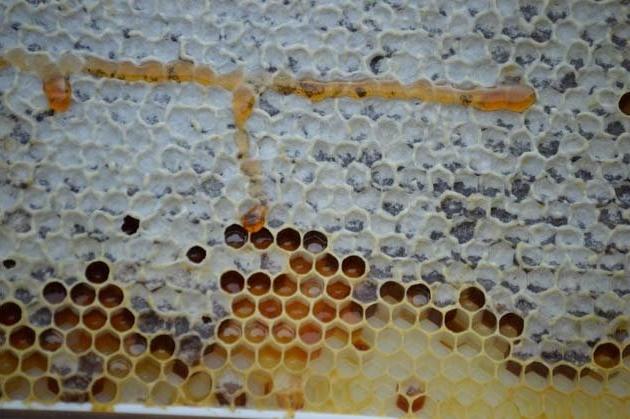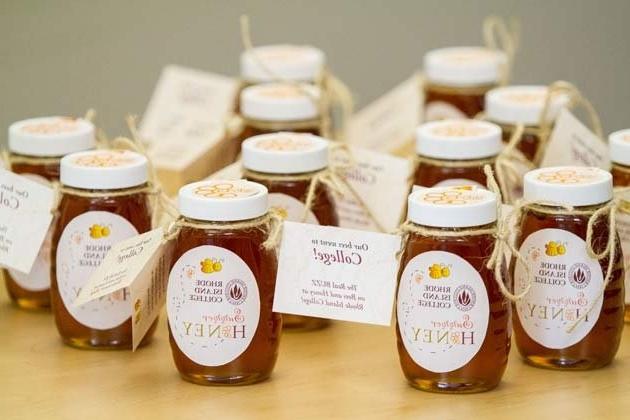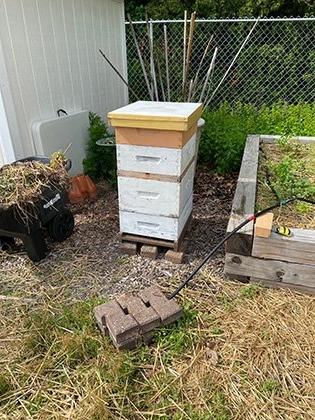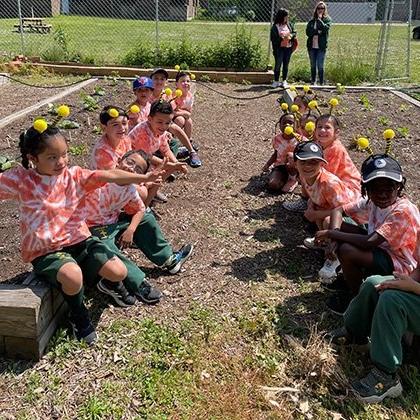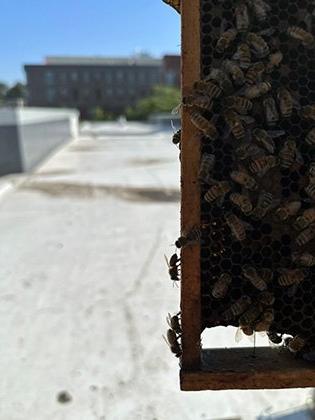General Information on Bees
Honeybees are social insects and live together in hives which may contain thousands of bees. A honey bee hive is like a complex society. Each individual has a job and together the bees all contribute so that the hive thrives. Each hive at RIC contains 40-50,000 bees. Within the hives, each bee works as part of a team to keep the hive functioning. The biology of honey bees relates to their behavior. Honey bees are classified as either worker bees, drones, or queens.
Worker Bees
Worker bees are females and help keep the hive in production. There will be thousands of workers and they hold many jobs. Worker bees care for the young, developing bees called larvae, and the queen bee. Worker bees also build hexagonal cells for the eggs and larvae, supply the hive with nectar, keep the hive clean, as well as cool in summer and warm in winter. As worker bees explore outside the hive, they collect nectar and pollen, water, and plant sap called propolis. These materials will be used for food resources and to fix damages in the hive.
Drone Bees
Within each hive there will be only a few hundred males called drones. Drone bees have one job: to mate with a queen bee. Directly after mating the drone will die. While waiting to mate, the drones will live in the hives and be taken care of by the worker bees. Although drones are larger than the female workers, they must rely on them for protection because drones lack stingers.
Queen Bee
A hive will have a single queen bee who lays all the eggs in the hive. She is larger than the rest of the workers and drones and is selected as the queen by being fed a special food, called royal jelly, when she is a developing larva. Her job is to lay eggs, up to 1,500 per day, and go off to find drones to mate with. She will travel far outside the hive to reduce chances of mating with a drone from her own hive. This helps prevent poorly developed bees from being born and damaging the system. She will typically live for two years. After her death, a new queen is chosen. In hives, the queen will be marked with paint to keep track of her whereabouts.



